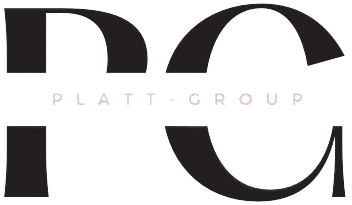One of the most frequently asked questions I see on forums like Reddit is: “What supplements or nutritional products are required after surgery, and how much do they cost?”
It’s a smart question and one that deserves careful consideration. Post-operative nutrition isn’t just a follow-up detail; it’s a vital part of your recovery and long-term health. Whether you’re preparing for bariatric surgery or another procedure that impacts nutrient absorption, understanding the cost and commitment of post-care is essential.
💊 Why Post-Care Nutrition Matters
After surgery, your body undergoes significant changes. Nutritional needs shift, and in many cases, lifelong supplementation becomes necessary. These costs can add up, so factoring them into your overall decision-making process is important. Skipping this step can lead to unpleasant surprises or worse, nutritional deficiencies that compromise your health.
🧾 What I Take (Your Plan May Vary)
To help answer this question, I’ll share what I currently take as part of my post-surgical routine. Keep in mind: This is my personal regimen, not medical advice. Your needs should be discussed with a licensed nutritionist or dietitian prior to surgery.
If you’re working with a Bariatric Center of Excellence, this information is typically included in your pre-op binder and discussed during your preparation appointments. These centers provide comprehensive guidance to ensure you’re fully informed before your procedure.
Required for Roux-en-y bariatric program:
- BariatricPal Multivitamin One Capsule with 45mg Iron (90ct, 1 in morning, 3 month supply)
- Nature’s Bounty Vitamin B-12 Quick Dissolve Tablets 2500mcg (75ct, 1 per week under tongue, year supply)
- Nature’s Bounty Vitamin D3 5000 IU Softgel (240 ct, 1 in morning and night, 4 month supply)
- Bariatric Advantage Calcium Citrate Chewy Bites 500mg (90 ct, as needed based on dietary calcium intake from protein shakes or milk etc)
Not required for the bariatric program (supplements):
- Nature’s Bounty Odorless Fish Oil 1200mg (90 ct, 1 in morning and night, 45 day supply)
- Natures Bounty Magnesium Glycinate 240mg (120 ct, 2 at night, two month supply)
- Nature’s Bounty Co Q-10 400mg (39 ct, 1 in morning, 39 day supply)
- Nature’s Made Potassium Gluconate 550mg (100 ct, 1 at night, 3 month supply)
Some useful items:
Managing medications and supplements after surgery can feel overwhelming at first, but a few simple tools made a big difference in my routine. For example, using a pill organizer helped me stay consistent and track what I was taking each day. A pill splitter also proved useful especially as I began losing weight and, under medical supervision, started reducing my blood pressure medications by taking half a pill. Over time, I went from taking three blood pressure medications to none.
💰 Supplement Costs: Not as High as You Might Think
When you review the list of required supplements, you’ll find that the costs are generally manageable. I haven’t included specific prices here, as many of these items can be found on sale or in bulk, allowing you to stock up and save. That said, it’s important to approach supplementation with care and proper guidance.
Unfortunately, many people who report complications or high costs are often following generic advice from platforms like YouTube, where recommendations may not be tailored to individual needs. Always consult with your bariatric care team before purchasing or starting any supplements. Personalized guidance is key to avoiding unnecessary expenses and potential health risks.
⚠️ Lessons Learned: Supplements I Regret Taking
Like many others, I’ve made a few missteps along the way. For instance:
- Turmeric was widely recommended as a powerful antioxidant, but after a month of use, my iron levels and blood cell counts dropped significantly.
- Around three months post-surgery, I experienced hair thinning and quickly purchased biotin and collagen peptides. In hindsight, had I been more patient, I would have seen that my body was naturally adjusting and the hair loss was temporary.
- I also experimented with pomegranate extract, garlic, and other supplements, only to realize they had little noticeable impact on my overall health and wellness.
🧠 Final Thoughts
Before surgery, take time to research and ask questions not just about the procedure itself, but about what comes after. Post-care nutrition is a lifelong commitment for many, and understanding the products, routines, and costs involved will help you make empowered, informed decisions.
These experiences taught me that more isn’t always better!
